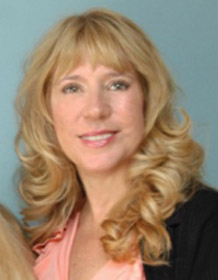This enthusiastically attended event served as a platform to showcase creative business ideas that are relevant in Sonoma County.
 On April 30, 2015, the Sustainable Enterprise Conference, presented by Sustainable North Bay, took place. It was a daylong, collaborative effort focused on how sustainable and eco-minded businesses promote success. Besides the long- and short-term financial benefits of green business practices, there was an emphasis on developing social prosperity and environmental awareness. This enthusiastically attended event served as a platform to showcase creative business ideas that are relevant in Sonoma County, a place where communities are committed to sustainability. More than 50 exhibitors and 48 speakers provided valuable information and insight to more than 350 attendees. Speaking topics included ideas about efficiency, developing local programs, and thinking innovatively.
On April 30, 2015, the Sustainable Enterprise Conference, presented by Sustainable North Bay, took place. It was a daylong, collaborative effort focused on how sustainable and eco-minded businesses promote success. Besides the long- and short-term financial benefits of green business practices, there was an emphasis on developing social prosperity and environmental awareness. This enthusiastically attended event served as a platform to showcase creative business ideas that are relevant in Sonoma County, a place where communities are committed to sustainability. More than 50 exhibitors and 48 speakers provided valuable information and insight to more than 350 attendees. Speaking topics included ideas about efficiency, developing local programs, and thinking innovatively.Some important keynote speakers addressing this year’s conference’s theme, “Capital for a Sustainable Future,” included Kat Taylor, CEO of Beneficial State Bank (who spoke about socially responsible banking); and Marco Vangelisti, founder of Essential Knowledge for Transition (who discussed investments with communities and large foundations). Other speakers included Professor Robert Girling, Ph.D., professor of Sustainable Enterprise, Sonoma State University and co-organizer of the Sustainable Enterprise Conference and the Future Makers Sustainable North Bay Youth Summit; Cordel Stillman, deputy chief engineer of Sonoma County Water Agency, and Eppa Rixey, strategic planning manager of Lagunitas Brewing Company, who spoke about water and the future; and Bill Stewart, president of SolarCraft, and Geof Syphers, CEO of Sonoma Clean Power, who discussed clean energy.
The conference was held, appropriately, at Sonoma Mountain Village in Rohnert Park, a leader in sustainable living. Embracing a way of life with global responsibility in mind, it’s leading the way toward community-oriented living. This One Planet Community inspires a reduced ecological footprint, as it’s maintained and powered with clean energy and constructed sustainably.
Sonoma Mountain Village is just one of many innovative North Bay businesses. For example, The Barlow in Sebastopol offers a unique shopping experience, where resident artisans, farm-to-table restaurants and local wine, coffee, spirits and beer makers have come together under the banner of green business. Others, such as All Truss in Sonoma, an FSC Certified business, are leading the way in the resurgence of the building industry in the North Bay. It takes many industry sectors working together to create a truly sustainable environment.
Other Sonoma County businesses shared their success stories included Bioregional One Planet Living, represented by co-founder, Pooran Desai; the Sonoma Green Business Program, represented by coordinator, Kevin Kumataka; and the Food Business School, represented by its dean and executive director, William Rosenzweig.
The iHub Enterprise Accelerator was a supplementary event that provided an opportunity to nurture ideas presented during the conference. The three-hour workshop for executives and active entrepreneurs offered information such as how to attract financing and develop stakeholder commitments.
Student leaders were given an opportunity to share their visions with the Future Makers Sustainable North Bay Youth Summit. Presenters from established organizations such as Kellen Watson, program coordinator from Daily Acts, and Jenise Granvold, program manager for Solar Sonoma County, were available onsite, representing the true spirit of change through implementing sustainable visions. This inaugural summit, a conduit for positive change, was a spearhead for future events of this kind.
These ancillary events encouraged momentum and a circulation of information that encouraged and promoted networking, shared insight and support. The conference, too, has proven to be a place where information can blossom and reach the noses of innovative businesses, entrepreneurs and interested consumers. Creating sustainable business enterprises is a reasonable and admirable way to address issues like greenhouse gasses and carbon pricing and create solutions that work for the North Bay business community and our stunning, precious natural environment.
Authors Note: Special thanks to Felicia McFall, summer intern with Santa Rosa Junior College, and EcoGo.org editor Jessica Hughes.



